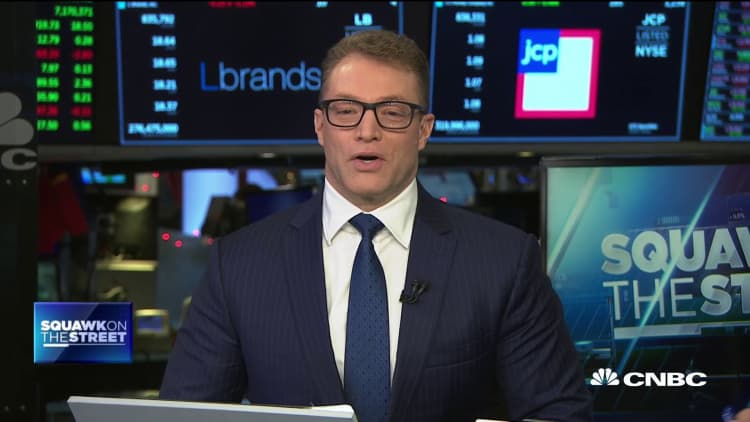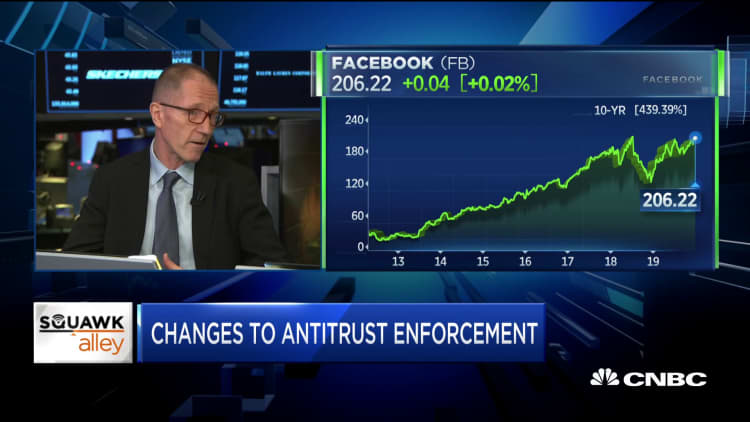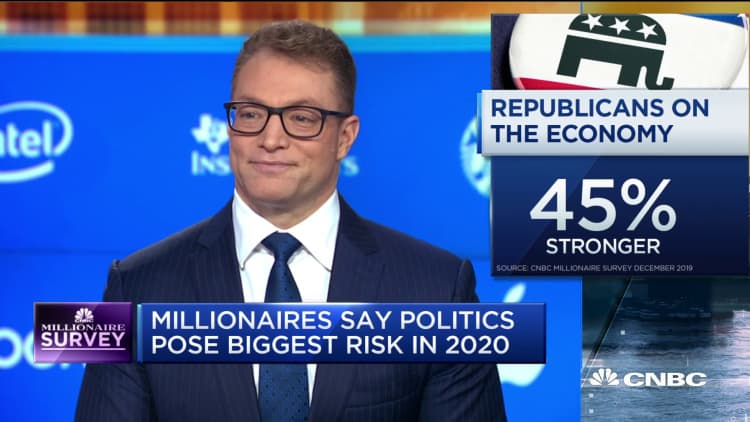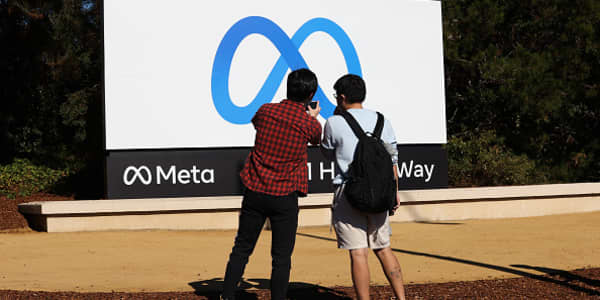Amazon just reported that consumers not only bought billions of dollars in stuff from it over the holidays, but purchased "tens of millions" of Amazon devices. Political campaigns that rail against Amazon's dominance are using its platform to order supplies. Big tech is bringing Americans together in many ways, but it's not just through smart devices and hard-to-resist two-day shipping. And unlike the extreme partisanship in politics and a growing wealth gap that often divides the public, wariness of big tech transcends party affiliation and social status, according to a new CNBC survey.
The CNBC Millionaire Survey finds that almost half of wealthy Americans (49%) believe the U.S. government should pursue potential antitrust violations for large tech companies including Alphabet/Google, Amazon and Facebook. Only 21% of millionaires disagree, while 30% expressed neutrality on the question. More wealthy individuals (14%) "strongly agree" than "strongly disagree" (6%) with the antitrust scrutiny.

There are some notable differences based on politics (as well as age and gender) in the CNBC Millionaire Survey for Fall 2019, conducted in November among 700 Americans with at least $1 million in investable assets. But the political distinctions were not highly partisan compared to other issues covered by the CNBC survey.
Democrats (56%) are more likely to agree with the antitrust investigations than Republicans (45%) or Independents (47%), but level of neutrality was similar (30% of Republicans and 29% of Democrats).
The political differences over antitrust are not a surprise.
Facebook and Alphabet are under intensifying antitrust scrutiny at the state and federal level, but the political individuals with whom many voters identify have focused their ire in different ways. President Trump has railed against Amazon and its CEO Jeff Bezos, while also making claims of social media bias and censorship. Democratic presidential candidate Elizabeth Warren has led the call for a breakup in what is being portrayed on the campaign trail as a new era of monopolies.
Pew data from the past few months has documented broad public concern about technology companies' performance. It found that the public, especially Republicans, think social media sites censor political viewpoints at least to some degree.
Democrats, meanwhile, are much more negative on social media firm's ability to control offensive content, according to Pew.
"This is a season of reckoning for technology companies," said Lee Rainie, director of internet and technology research at Pew Research.
Many Americans conflicted on big tech
The CNBC Millionaire Survey also asked wealthy Americans whether expansion and growth by companies such as Google, Amazon and Facebook is good for consumers. By political party, Republicans are more likely to believe big tech is good for consumers, 46% versus 39% of Democrats, and 35% of Independents. But large percentages of each party are neutral.

Many wealthy Americans are just not sure what to think about big tech. The neutral percentage was higher on the question of whether expansion and growth of these companies is good for consumers (37%) than it was on the antitrust question, and it was just behind the 39% of millionaires overall who said it is good for consumers.
Pew's Raine said its data has shown a decline in public attitudes about the impact of tech firms on society.
"In the past year we saw a dramatic drop in public views that tech firms have a positive effect on the way things are going in the country. Interestingly, this was an across-the-board phenomenon with no really notable demographic differences among those whose views became less positive," he said.
The public is conflicted in other ways. Pew data also shows that Americans are pretty positive that tech leaders build products and services enhance lives, even if they say they don't trust the companies' leaders.
In August, Gallup found that public sentiment toward tech companies remains more positive (46%) than negative or neutral, "but compared to a lot of other industries, it's not that great," said Jeff Jones, senior editor at Gallup. "A lot of industries get a majority positive answer," he said.
Even as technology stock lead the recent record stock market gains, Jones said public sentiment on tech tracks closely with internet industry after the dotcom bubble burst. In 2001, 44% of the public was positive on the internet industry.
Gallup found that 44% of Republicans, 49% of Democrats and 43% of Independents expressed a positive view.

A silver-lining for technology: It still has a long way to fall to match the least-liked sectors. Pharmaceuticals is the most negative (27% positive versus 58% negative, according to Gallup).
And a time of intense scrutiny from politicians on both sides of the party divide, one encouraging bit of data from Gallup: Americans like the federal government even less than tech. Twenty-five percent of Americans are positive on the federal government, versus 52% negative.
Millionaires and big tech by the numbers
61%: Of younger millionaires support pursuing antitrust violations against big tech, the only of three age groups (including 56-69 and 70 and older) where the majority agreed with investigations.
16%: Of younger millionaires were neutral on antitrust, half of the older age groups level of neutrality.
49%: Of millionaires overall believe the U.S. government should pursue potential antitrust violations for large tech companies including Google, Amazon and Facebook.
21%: Disagree with antitrust cases.
37%: Of millionaire men support antitrust scrutiny.
37%: Of women are neutral on antitrust issues.
25%: Of Republicans disagree with antitrust investigations.
39%: Of millionaires overall say expansion and growth of big tech is good for consumers.
39%, 37%, 36%: Independents, Republicans and Democrats, respectively, who are neutral on expansion and growth of big tech being good for consumers.







